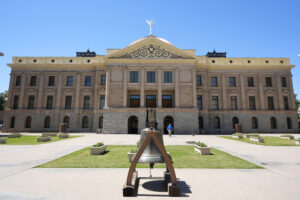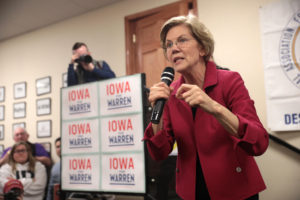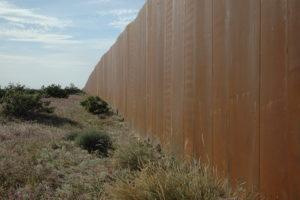Finding the Forgotten Majority
The new media economy encourages ever more violent vitriol because that's now become the most reliable way to build a following and, thus, generate profit.“There is a need for some reflection here: What is too far now? What was too far when Oklahoma City happened is accepted now. There’s been a desensitizing. These town halls and cable TV and talk radio, everybody’s trying to outdo each other.”
Those were the words of an unnamed Republican senator after America’s latest shooting rampage, this one a political assassination attempt in Tucson, Ariz. How sad — and telling — that the lawmaker refused to attach his or her name to such an important truism.
But that is the larger story of the slaughter’s aftermath. As conservative pundits spent the week insisting that their violent political rhetoric is somehow unrelated to political violence; as Sarah “Don’t Retreat, Reload” Palin scrubbed her website of rifle-sight graphics targeting Rep. Gabrielle Giffords; as right-wing radio hosts sanitized the Tucson shooter as a “lone gunman” rather than a “terrorist” — in the midst of all this obfuscation, few public figures found the courage to acknowledge truths that so desperately need to be aired.
One of those truths is that media can set societal norms and, thus, can help create conditions for violence — whether a mass murder in Tucson, an IRS bombing in Austin or any other future massacre. Another less obvious truth is that the new media economy encourages ever more violent vitriol because that’s now become the most reliable way to build a following and, thus, generate profit.
Save for sensationalists like Rupert Murdoch, media owners today aren’t deliberately manufacturing this dangerous dynamic — for the most part, it reflects a convergence of market forces. In this brave new world of infinite information conduits, the audience is more fragmented than ever. That has made the pursuit of audience share more intense, ultimately rewarding the loudest violence-glorifying demagogues in the noisy rabble. And remember: The situation is being further exacerbated as many media outlets transform their business models from mass broadcast to niche narrowcast — a shift that allows relatively small fringe mobs to sustain the most vituperative voices of hate.
Add to this a recession that is reducing resources for real journalism, sprinkle in our dehumanizing politics of vilification, and America has built a media economy that incentivizes violent bombast. Indeed, rather than nurturing the talent and intellect necessary to build a following through solid reporting and analysis, the system makes it far more efficient to generate viewers, listeners and Web clicks by simply screaming, “If ballots don’t work, bullets will,” as one Florida radio host recently thundered.
Like many who still cling to journalistic ideals and democratic principles, I’ve grappled with the pressures of this alarming change in the media landscape. As a radio host, I feel the constant pull of the pack mentality — that temptation to follow the path of least ratings resistance and use the public airwaves as a “blowtorch” (as the saying goes in the industry). Oh, how easy that would be — I could just add my voice to the now ubiquitous hatefest that polarizes issues and too often suggests violence is a legitimate form of political expression.
Alas, I’ve done my best to avoid this sadistic melee. I’m sure I haven’t been perfect, but I’ve tried to find an alternative route that circumvents the pitchforks, torches and Glocks. And thankfully, I’ve found support. My Colorado radio station has unabashedly backed my attempt to create a different kind of programming, and I’ve found a diverse and growing listenership that values something more than violent invective.
This is what still gives me hope in such dark times. For if there is an audience in my state that wants something more — something substantive and nonviolent — then there are audiences everywhere that want something more, too. It’s the media’s responsibility to start finding that forgotten majority before more blood is spilled.
David Sirota is the author of the best-selling books “Hostile Takeover” and “The Uprising.” He hosts the morning show on AM760 in Colorado and blogs at OpenLeft.com. E-mail him at [email protected] or follow him on Twitter @davidsirota.
© 2011 CREATORS.COM
Your support is crucial…With an uncertain future and a new administration casting doubt on press freedoms, the danger is clear: The truth is at risk.
Now is the time to give. Your tax-deductible support allows us to dig deeper, delivering fearless investigative reporting and analysis that exposes what’s really happening — without compromise.
Stand with our courageous journalists. Donate today to protect a free press, uphold democracy and unearth untold stories.









You need to be a supporter to comment.
There are currently no responses to this article.
Be the first to respond.